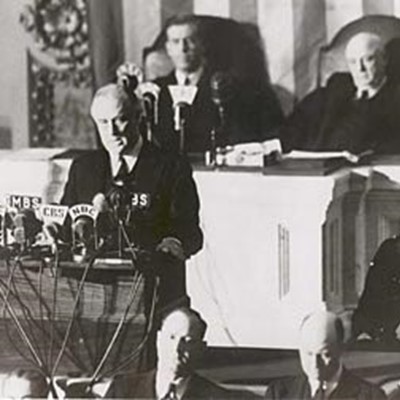
"Appreciation is a wonderful thing. It makes what is excellent in others belong to us as well."
– Voltaire
Giving thanks to your audience is a necessary—and appreciated—part of many speeches and presentations. It's considered good manners, common courtesy.
So is it rude for us to confess?
We're not always grateful for the way speakers go about it.
Here are three ideas for making your words of appreciation reflect the gratitude you no doubt feel.
1. Consider weaving it in instead of leading with thank you.
Many speakers open with thanking a list of parties who've made the occasion possible. We're all in favor of speakers employing the niceties, including sincere thanks.
But, could those thanks come a few sentences into your presentation? Somewhere in the middle, where it's relevant. Or even at the end?
There are good reasons to give this some thought:
The open is a great chance to grab audience attention. The predictable round of thank yous squanders your chance to hook them with the topic and why they care.
Because so many speakers start with thank you, it sounds less genuine, more perfunctory. Adding thanks at a time when they connect to the material—and the people being thanked—gives the expression of appreciation more significance and sometimes, even more sincerity.
That said, you have to honor conventions. If you believe your audience will be offended by a thank you that comes three sentences into your presentation, stick with thank you at the top.
Here's our wish: That you'll be deliberate. Instead of automatically rattling off the thanks to open your next talk, consider your options.
2. Cut the I want to and I'd like to and just say "thanks."
You've surely heard the speaker who says I’d like to thank the hosts of this great event…..I’d like to thank you for your attention…..I want to thank the sponsors for making this possible.
To which we say, "If you'd like to thank us so much, why don't you?"
Go ahead. Say thank you. Instead of telling us how much you'd like to ... someday:
Thank you to our hosts for this great event
Thank you for your attention
Thank you to our sponsors for making this possible
See? Easy and fewer words!
3. Make it about them and not you.
In the spirit of the previous point, try phrasing your thanks so they're about your audience and not you.
For example: Instead of "thank you for inviting me to speak about _____," which is clearly about you and not them, consider "thank you for your interest in ________."
"Thank you who spilled the strong-willed wine for not being me so I'm not to blame."
– from the poem "Spring Reign" by Dean Young
And to show our appreciation to you for reading this entire post, here's a link to a poem that says thank you.






